“Hockey is one of the great passions of my life. I have never found it anti-intellectual.”
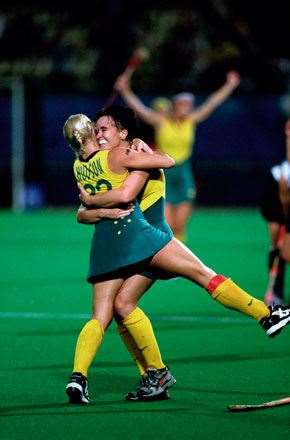 Alyson Annan and Nikki Hudson thrived under Charlesworth’s coaching reign. Images: Getty Images
Alyson Annan and Nikki Hudson thrived under Charlesworth’s coaching reign. Images: Getty ImagesIs it difficult coaching teams like the Hockeyroos and Kookaburras, where the public scrutiny arrives in very short and distinct bursts?
Yes, but if you’re under scrutiny all the time, it could make it a lot worse … But the fact hockey only receives concentrated, short-focus scrutiny is disappointing for the sport. Hockey is a much better sport to watch now than it was ten, 20 years ago. It’s full-on, very high intensity, very high skill level. People who go and see the games are surprised by the level of skill and the speed with which the ball moves. So it’s disappointing for me that there isn’t more media scrutiny. That can make it easier for a coach, but it can also make it more difficult. I mean, how do you measure success in my job? In the end, most people will measure whether or not I’ve been successful in my job on the last two games in the Olympics in 2012. And that’s a pretty hard measuring stick.
Would you consider coaching other sports?
There was a time when those things were a possibility; there was certainly a time when the cricket job was there, but the timing wasn’t right. I certainly think that most of the coaching in sport is generic, but the technical detail of a sport is something you need to be on top of. And then you need to have the passion for it, because it’s a very demanding job; you’ve got to live it. If all those things lined up … Technical detail’s the thing I’d need to get on top of. Of course I had that with cricket, but whether I had the passion for it … I don’t think I could watch 250 days of cricket a year.
Considering the breadth of your experience, do you ever find coaching hockey limiting?
Well, I think the secret for anybody is finding out what you’re best at and what you love most. Hockey has always been one of the great passions of my life. I never found it anti-intellectual, I always found it an intellectual exercise and I still do. So my answer is no; I love the game and this is the thing I’ve found in my life that I do best. And so it’s very satisfying.
In your own playing career, did your failure to win Olympic gold shape your approach to hockey now?
I remember losing that gold medal match in Montreal and I justified it by saying, “Well, if we’d won now, what else would there have been?” And I kept playing for ten or 12 years after that match.You only get a couple of chances in your lifetime. You know, we had a much better team for Moscow than we had for Montreal, but we didn’t get that chance. For the LA Games I thought we were the best team in the world and we didn’t even make the gold medal game. And that’s the reality of the Olympics – the world record holder wins one event in four. It’s a hard gig. And I don’t think we put in the time and the preparation back then to be really reliable. We had brilliant players and we did well at certain times, but we weren’t as reliable as we could’ve been. My view when I became a coach was that we could do these things. Perhaps those disappointments as a player were the things that stirred me to believe that.
Related Articles
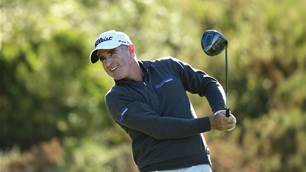
Video interview: Drinks With ... Matt Millar
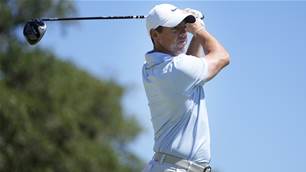
McIlroy turns to Butch Harmon ahead of Augusta berth
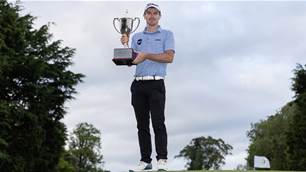
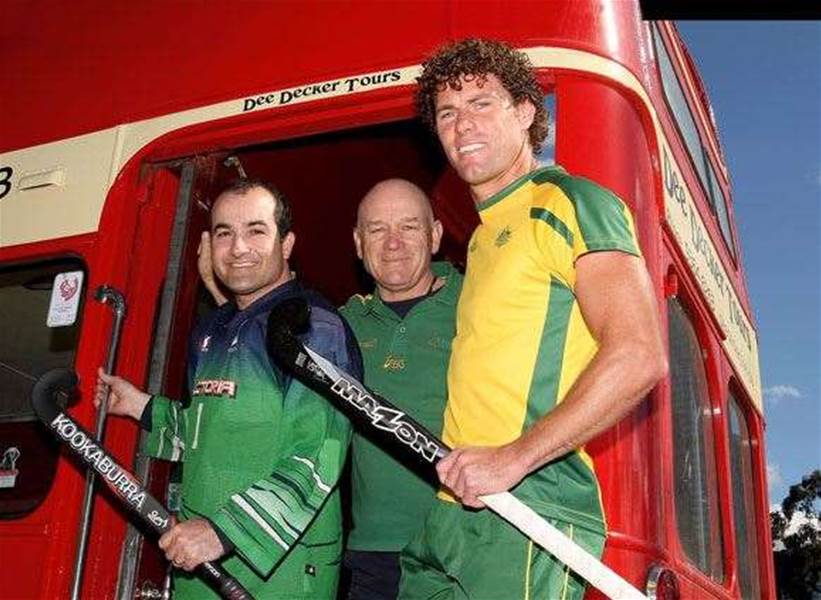
.png&h=115&w=225&c=1&s=1)










